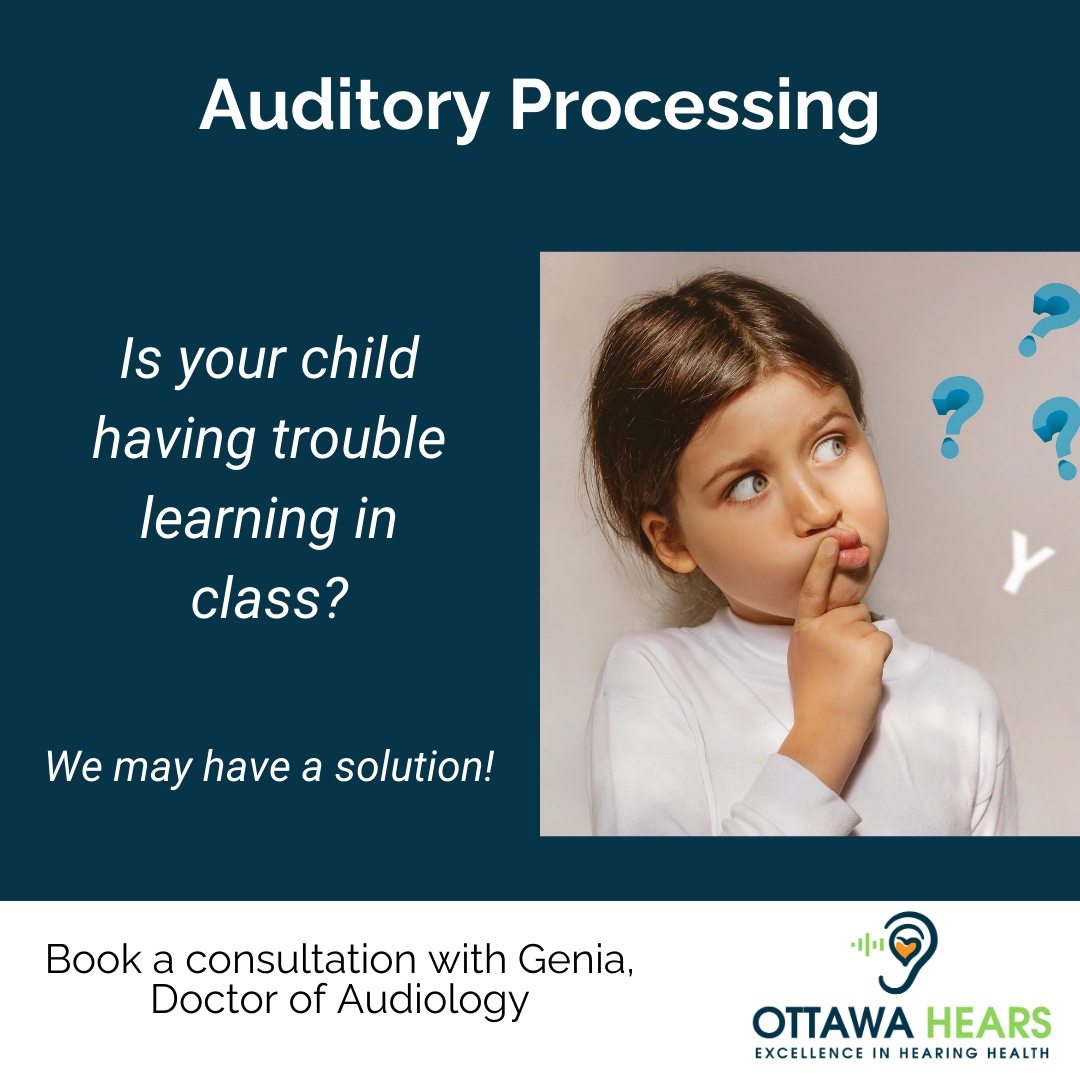Understanding Auditory Processing Disorder: Your Brain Helps You Hear

While our ears are the primary organs for picking up sound, it is our brain that truly deciphers these signals into meaningful information, such as speech or music. This complex process, involving auditory processing in the brain, can sometimes be impaired, leading to Auditory Processing Disorder (APD). APD is characterized by the brain's struggle to process and interpret sounds correctly, even though the individual's hearing ability might be normal (American Speech-Language-Hearing Association, n.d.). This disorder can present challenges in both children and adults, affecting their ability to comprehend spoken language, especially in noisy environments, and to follow spoken instructions (Keith, 2000).
Signs of Auditory Processing Disorder in Children
Children with APD often display signs that can be mistaken for inattention or lack of interest. However, these behaviors are usually due to their difficulties in processing auditory information. Common indicators include difficulty understanding speech in noisy settings, problems following spoken instructions, confusing similar-sounding words, challenges in reading and spelling, and appearing easily distracted or inattentive (Bellis, 2003).
Signs of Auditory Processing Disorder in Adults
APD is not exclusive to children; adults can also be affected. In adults, APD can manifest in various ways, impacting both personal and professional life. Key signs include struggles with comprehending speech in noisy areas, frequent forgetfulness of verbal information, difficulty in locating the source of a sound, reduced enjoyment or difficulty in processing music, and challenges in acquiring new languages (Keith, 2000).
Ottawa Hears Clinic: Addressing APD
Ottawa Hears Clinic plays a vital role in diagnosing and managing APD. APD can often be confused with other conditions like ADHD, dyslexia, or age-related hearing loss. Our clinic, equipped with experienced audiologists, specializes in identifying APD and devising personalized management plans. Our approach may include environmental modifications for improved auditory processing, strategies and coping techniques for individuals with APD, and tailored training programs to enhance auditory processing skills (Bellis, 2003). Each treatment plan is uniquely formulated to cater to the individual's specific needs and challenges associated with APD.
Conclusion
Our understanding of hearing extends beyond the ears to the intricate workings of the brain. APD exemplifies the complexities of auditory processing and the importance of specialized care in addressing such disorders. Ottawa Hears Clinic is dedicated to assisting individuals in navigating the challenges of APD, ensuring a comprehensive approach to auditory health.
At Ottawa Hears Audiology, we provide top-quality audiological care with comprehensive hearing assessments, including advanced Speech-In-Noise testing, to ensure the best hearing health outcomes for our patients.
🌐 Online: For more information or to book an appointment, please visit www.ottawahears.com. Our user-friendly online form is designed for your convenience.
📞 Phone: Prefer speaking to a person? Call us at 343-800-5909. Our friendly team is ready to assist you and answer any queries you may have.
Note: No medical referral is required to see our knowledgeable, experienced, certified, and regulated Audiologist. Additionally, many of our services are eligible for partial or full coverage by insurance or third-party payers.
References
American Speech-Language-Hearing Association. (n.d.). Auditory Processing Disorder. Retrieved from https://www.asha.org
Bellis, T. J. (2003). Assessment and management of central auditory processing disorders in the educational setting: From science to practice (2nd ed.). San Diego, CA: Singular Publishing Group.
Keith, R. W. (2000). Central auditory and language disorders in children. San Diego, CA: Singular Publishing Group.
keywords: Doctor of Audiology, Hearing Loss, Tinnitus, Audiology, Audiologist, Hearing Aids, FM system, Cochlear Implants, Tinnitus, Ear Health, Deafness, Hearing Test, Sensorineural Hearing Loss, Conductive Hearing Loss, Mixed Hearing Loss, Noise-Induced Hearing Loss, Ear Infections, Hearing Loss Treatment, Hearing Loss Prevention, Audiologist Consultation, Hearing Loss in Seniors, Hearing Loss in Children, Assistive Listening Devices, Otology, Ear Anatomy, Hearing Rehabilitation, Hearing Loss Symptoms, Hearing Health, Ear Protection, Custom Earplugs, Ottawa Hears Audiology, Oticon, Phonak, Unitron, Widex, Signia, Resound, Starkey